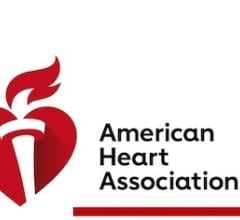
Image credit: Getty Images
March 9, 2022 – Poor heart health, especially among women of color, puts both mothers-to-be and their infants at risk, with heart disease causing more than one in four pregnancy-related deaths (26.5%) in the U.S., according to the American Heart Association Heart Disease and Stroke Statistics 2022 Update. To address this growing concern, the American Heart Association has announced a $20 million scientific research initiative created to fund the “Health Equity Research Network (HERN) on Disparities in Maternal-Infant Health Outcomes.” The initiative seeks to better understand the link between pregnancy complications and cardiovascular health among women and their babies. The Association will select several teams of researchers to undertake special projects focused on significantly advancing the understanding of the factors underlying the disproportionate impact of maternal complications and deaths among Black women, Native American women and those living in rural areas.
“The Health Equity Research Network on Disparities in Maternal-Infant Health Outcomes is part of the multi-pronged approach of the American Heart Association’s unprecedented pledge to aggressively address social determinants of health while working to improve health equity for all communities” said American Heart Association President Donald M. Lloyd-Jones, M.D., Sc.M., FAHA, chair of the department of preventive medicine, the Eileen M. Foell Professor of Heart Research and professor of preventive medicine, medicine and pediatrics at Northwestern University’s Feinberg School of Medicine in Chicago. “We are committing more than $230 million over the next four years to support targeted initiatives and programs addressing health equity, while leading additional efforts to drive systemic public health change focused on improving the social determinants of health and tackling issues of health justice and structural racism head on.”
According to the U.S. Centers for Disease and Prevention (CDC), the U.S. has the highest maternal mortality rate among industrialized countries (Hoyert, NCHS Health E-Stats, 2021), and the U.S. is the only industrialized country in which rates are worsening. Conditions related to the heart and vascular system are the leading causes of pregnancy-related deaths in the U.S. Pregnancy-related death rates for non-Hispanic Black and American Indian/Alaska Native women are more than two to three times that of white women and Hispanic women. These disparities persist independent of socioeconomic variables.
“Structural racism in the healthcare system impacts how women of color, especially non-Hispanic Black women, are treated across the spectrum of pre-conception, pregnancy and postpartum care,” said Michelle A. Albert, M.D., M.P.H., FAHA, volunteer president-elect of the American Heart Association, professor of medicine, director of the CeNter for the StUdy of AdveRsiTy and CardiovascUlaR DiseasE (NURTURE Center) and associate dean of admissions at the University of California, San Francisco. “Chronic stress and associated experiences including racism are linked to cardiovascular disease.”
“Social determinants of health contribute to approximately 80% of cardiovascular risk,” said Albert, who is a recipient of previous research grants from the American Heart Association including the 2018 Merit Award. “In order to inform urgently needed solutions for the maternal health crisis, research is needed that takes into account the unique social determinants and stressors, as well as clinical risk factors such as fibroids and care processes that result in the disproportionate maternal health outcomes by race and ethnicity.”
Racial and ethnic maternal health disparities also translate into disparities in infant mortality with Black babies having an infant mortality rate of 10.8 deaths per 1,000 live births compared with 8.2 for American Indian/Alaska Native babies and 4.6 deaths for white babies, according to the CDC. Albert also noted that geographic disparities also exist among women living in rural communities who experience higher mortality rates than women living in urban communities.
The Health Equity Research Network on Disparities in Maternal-Infant Health Outcomes is part of the multi-pronged approach of the American Heart Association’s unprecedented pledge to aggressively address social determinants of health while working to improve health equity for all communities. This is the second health equity research network funded by the Association. The Health Equity Research Network on Hypertension was launched in July 2021 with research projects focusing on hypertension prevention in underserved populations which historically have the highest prevalence of this mostly preventable, but potentially deadly condition.
The deadline for submitting pre-proposal notification is March 8, 2022, with full applications for the research grants due on April 21, 2022. The selected awardees will be announced in late June and the four-year research studies will get underway July 1. More information on the grants and instructions for applying can be found here.
The American Heart Association, the world's leading nonprofit organization focused on heart and brain health for all, is the largest not-for-profit funding source for cardiovascular and cerebrovascular disease research next to the federal government. Since 1949, the Association has invested more than $4.9 billion in cardiovascular, cerebrovascular and brain health research. New knowledge resulting from this funding benefits millions of lives in every corner of the U.S. and around the world.
Additional Resources
- Call to Action: Maternal Health and Saving Mothers – American Heart Association Policy Statement (September 8, 2021)
- Six pregnancy complications are among red flags for heart disease later in life, American Heart Association Scientific Statement (March 29, 2021)
- Follow AHA/ASA news on Twitter @HeartNews


 January 19, 2026
January 19, 2026 









